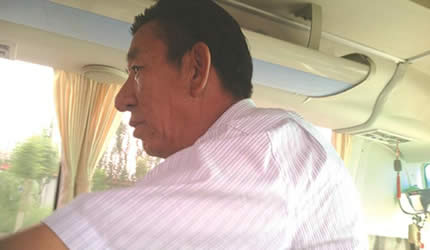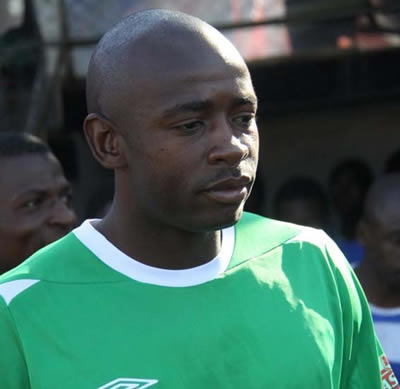Endless possibilities for transformation

Monday kind of reminded Zimbabweans, the region and the international community that Zimbabweans are capable of resolving the contestations arising from the July 31 poll date proclaimed by President Mugabe.
Her remarks at a Press conference in Geneva should be food for thought for anyone who desires to move this nation forward: “The courts have said the elections must take place. And so do we listen to the courts? Or do we not listen to the courts? I thought a lot of you have always been talking to us about the rule of law and respect for the Judiciary,” Reuters quoted Dr Dlamini-Zuma as saying.
“So I don’t know. The Zimbabweans must sort it out, whether they listen to the Judiciary and go with what the Judiciary has said, or whether they ignore it.”
As a writer, my hope was that by now, I would be saying my two-pence worth regarding the election manifestos of various political parties and also reminding politicians that they have to walk their talk since we are increasingly seeing the political arena being turned into a gravy train.
But it seems as though I might have to wait a little bit longer, waiting for the rain, as Charles Mungoshi aptly wrote, waiting also for the self-appointed gods and goddesses in our midst to tell us when elections should be held despite what the law says. Who knows, the wait could take forever especially this cold winter, with its countless power cuts and dry water taps. As the haggling over polling dates continues, with some making a claim that has only been attributed to our Lord Jesus Christ who holds “the keys of death and hell” (Revelation 1:18), it remains to be seen how sense will prevail. But, “the fear of the Lord is the beginning of knowledge” (Proverbs 1:7).
For some of us that wait is nothing compared to how we waited for the end of colonial rule and the attainment of the FREEDOM to choose our own government based on a home-grown Constitution.
While we wait for July 31 or August 14 or October 31, I will write about others from yonder places, others who see opportunities to transform lives even under the harshest of conditions. Instead of crying out to government or the international community, they take the bull by its horns and tame the shrew. Their heroism is now celebrated the world over.
 This is none other than Wang Youde, director of Baijitan Desertification Control Forest Farm in China’s Ningxia Hui Autonomous Region.
This is none other than Wang Youde, director of Baijitan Desertification Control Forest Farm in China’s Ningxia Hui Autonomous Region.
I am writing about this man and the wondrous transformation he is making in the Maowusu Desert. Together with a group of people from Southern Africa, we met him and he took us on a tour of the reforestation project showing us what he has achieved so far, and the even bigger task that lies ahead. It is a task and achievement that can only be described in graphic form, and this space cannot contain the various pictures about this project. The Chinese have a saying that, “it is hard to bring up a child, (but) it is even harder to plant a tree in the desert”, but Wang Youde, now 60 years of age, has dedicated his vision, determination, leadership and motivation over the past three decades to transforming a desert into a lush forest. The re-greening of this “no-man’s land” has brought hope to thousands of inhabitants of this arid part of China. According to a 2011 documentary on Wang Youde and the project, “The man and the sand”, in the northwest of the Maowusu Desert, lies a sprawling 42 kilometre green zone of unexpected environmental barrier against sand dunes.
This green oasis started as “one man’s dream, and through years of determination, the dream has made him a legend”. By 2007, he was awarded the Desertification Hero by the state council and in 2009; he was appointed to the top 200 Who’s Who in China and was also honourably distinguished as a pacesetter.
Today, his community is thriving with green grass and flourishing trees. But two decades ago, it was a different landscape — barren, dry and sandy. The workers did not have work to do for seven months in a year, and their average income was less than US$200 per year. Their living conditions were poor and most of them were migrating to other regions to seek better conditions. How many months do our rural communities work per year, and under what living conditions?
In 1985, Wang Youde was appointed Deputy Chief of the Baijitan Forestry Centre. In his own words, he says that he was not welcome and when his appointment was announced no one applauded.
The community made it very clear that he was not welcome, and although this embarrassed him, he did not lose hope. He modestly said this was unexpected, but also understandable: “You see, when their children could not go to school, when they had no food, no power and no water, how could they live and work here? And how could they control the desertification and plant trees? They didn’t have money . . .”
This was enough reason for him to stay on, determined to tame the environment and also improve the people’s living conditions, and he did it until the community found new hope for the first time in this huge desert. It has never been an easy road for him, and in some cases when he saw the people’s hard work and effort buried by the desert sand, he said that he literally wept: “Then I thought, the workers toiled long and hard and why didn’t God give more love to them (plants)? That was not the only loss for money, but the workers’ love and energy. They didn’t have money, so they had to exert their utmost strength . . . They wiped off their tears and started again”.
But if the trees and ditches got destroyed, Wang and his team would dig the ditches and plant again. With this kind of perseverance and effort, the trees began to grow in the sand. Wang believes that strength and perseverance are needed in the battle against desertification: “If we work together, we must win the battle against the encroaching desert . . .”
 Today, Baijitan’s Forestry Centre is covered with green plants. The workers’ income that ranged from less than US$200 per year twenty years ago is now about US$6 000.
Today, Baijitan’s Forestry Centre is covered with green plants. The workers’ income that ranged from less than US$200 per year twenty years ago is now about US$6 000.
They now live in beautiful housing and enjoy modern amenities, thanks to one man’s commitment — the Desertification Hero. Wang is also the second person to receive such a prestigious award. Former Chinese President Hu Jintao also recognised his efforts.
Wang concluded: “I couldn’t understand that time. I didn’t think I am a hero. When a man fights against desertification, I just thought that was passion for me . . . But the desert is our land, our home. During these 20 years, we have worked very hard. Now I can understand why I was being called a hero.”
What a befitting encounter. We applauded his work and told ourselves that with a number of deserts on the African continent such as the Kalahari in Botswana, the Namib in Namibia and the Sahara, not only are we failing to re-green them but we are also creating our own man-made deserts through environmental degradation. This mix of challenges, opportunities, commitment and determination if applied to Africa whole-heartedly would transform this continent.
Zimbabwe’s politicians are already entering this cauldron — wilderness-like environment — but they need Wang’s tenacity who has been nicknamed ‘‘warrior of the sands’’ or “sands warrior” in order to prevail.
Are they prepared for these harsh realities? Incidentally, Wang Youde is also a strong member of the Chinese Communist Party but one with the willingness and desire to serve the people, no matter how unfavourable the conditions. Lest they forget, the possibilities to improve people’s livelihoods are endless, and not limited to the political arena.







Comments